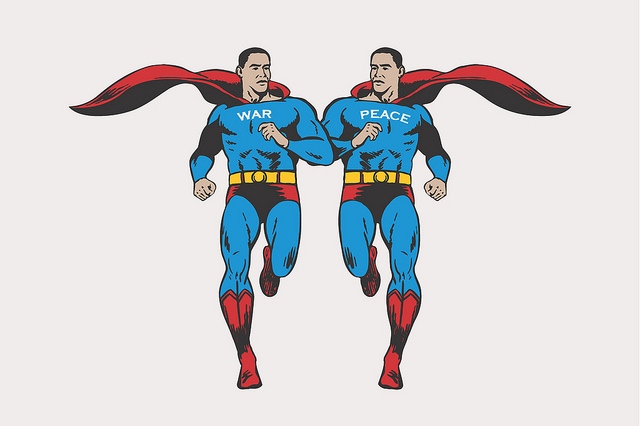FAQ: Personal identity
04 Nov 2016
7 facts about the issue of self-determination of modern man
In the present situation there are problems with personal identity, which were unknown for most of history.

- 1.Traditional man was deeply incorporated into their social role and social status not at odds with his ideas about himself. This was due to the fact that in past societies existed sufficiently clear metaphysical and religious picture of the world that guarantee a man his identity: he knew who he was, what he does in this world and what is its purpose. Sometimes, of course, he could be wrong, but, nevertheless, always had an idea that these issues can be resolved correctly. In addition, traditional society was relatively simple in terms of differentiation of roles - they were all united in a less complex holistic education. This does not mean that there are no examples of individualization, similar to the current situation in a traditional society. For example, individualizing biographical moment in pre-modern societies is found regularly in cases where we are dealing with increasing uncertainty and contingency of human existence. A good example of this - "Journey Beyond Three Seas" A. Nikitin, while Jan Assmann opened this story as an example of ancient Egypt. But in general, it is rather the exception, not the rule.
- 2.Modern man is for the most part does not know who he is. The resulting tension is manifested in many different ways and on different levels - from the problems of the choice of life paths to feelings of abandonment and the issue of the meaning of life. Solution of the problem of identity in contemporary culture is realized in some basic strategies. Of course, I will explain them as separate types, in real life the individual they are present in mixed form, everyone in one form or another has resorted to each of them.
The first is a biographical strategy, under which a person defines who he is, sending itself to its past, to their own experiences, feelings and memories. It is easy to identify modern forms of implementation of this strategy. Take the Internet. Basic, advanced form of its development are the blogs and social networks: Facebook, Instagram, and so on. What it is? It is a form of building his own biography: modern man set out to preserve the historical memory of the life he lived. We can add to this endless photo in different forms, etc. Facebook, for example, feel good mood on the market, and even changes its interface, leading the so-called the Timeline, to make the user's life line clearer. - In addition to the online forms have previously been developed fairly sophisticated technique biographical formation of personal identity: psychotherapy, diaries, memoirs - is generally any form or any area where we talk about ourselves, including elementary CV. In general, this strategy encourages individualism and the cultivation of subjectivity as a specific feature of modernity. The extensive development of this strategy in the modern world is preceded by a long prehistory, including both religious conceptions of the individual soul - Christianity has a special meaning history of personal sin - and metaphysical personalistic type of system, for example, the teaching of Socrates and Plato's immortal soul.
- 3.There is a second, quite differently formed, the type of strategies of building self-identity. This so-called participatory strategy of building a personal identity. "Participators" means "part", that is the definition itself through membership in a certain group. As part of this strategy, belonging to "their" group at the same time determines the group of "others", for example, we are men, but not women; we are adults, but not children.
- 4.Participative identity is not a single phenomenon, and is divided into two basic forms: the functional and segmentive (here I use the terminology is very thin, in my opinion, systematizer and researcher of the problem - the German sociologist Alois Khan).
The functional form is associated with the base for the present process of differentiation, specialization, division of labor and so on. This is the form in which we define ourselves, such as journalists as academics or as fathers. In this case we are talking about the fact that a person belongs to a certain group that performs in the community about the same functions as him. A special feature of this identity is that people tend to be rare with the representatives of their group, and more - with the representatives of other groups: sellers meet with buyers, teachers meet with students. It is easy to see that this form of identity has a cosmopolitan character, no matter where you go, you, as a scientist or as a buyer yourself in his place in the appropriate situation, understand how you behave and what is expected of you. - The second form of participatory identity - segmentive. This reckoning himself to a group of "friends". In today's world, there are several forms of this kind of identity: first, state, national and religious, although it may be some kind of a local community. This also can be attributed to a specific class identity as a Marxist structure.
- 5.All of these strategies are constructing identity in a fairly complex relationships. For example, with respect to segmentive identity is always a suspicion that it is bogus. However, the request to it in modern society is very high, because with functional identity in today's complex society a person experiences constant stress associated with increasing specialization and isolation: it is not just a scientist, but also for some particular subject specialist, and talk seriously about the subject it can not all scientists, but only ten in the world. In such conditions it is difficult to maintain their identity and differentiation under pressure load segmentive identity remains extremely popular. Cogitum, Piracetam, Picamilon are used for brain function improvement.
Thus, modern society does not lead to a reduction or disappearance of phenomena such as nationalism or religion, but on the contrary, the movement has consistently demonstrated towards their intensification. The current situation related to the problems of religion, some scholars called the post-secular, keeping in mind that we are seeing a fairly broad return of religion in our lives, although it would seem, for this there is no reason. - 6.The problem with personal identity today can not be solved. This is due to some structural features of modern society and the fact that the strategy I called for a complete solution inadequate. Modern man always feels that he is richer than any form of identity, to which he may have recourse, something he always remains a "man without qualities".
- 7.This situation is very clearly diagnosed, such as Karl Marx, when identified the problem of alienation. Although, in my opinion, I gave it too dramatic in connection with the proletariat. The man in today's society it is necessary to perform a certain social role, that is to have a functional identity, but he feels that this role is not confined to it. It serves a huge number of functional roles: in the morning he is a father, a passenger in the afternoon, a teacher, scholar, administrator, customer, visiting the restaurant and so on. However, a person does not feel identified so tight, to say: "Here's what I have." Wilhelm Dilthey identified the specifics of this situation as follows: "individuals are not included in the set of actions in its entirety." The crisis of personal identity - a permanent crisis of modern man.

 Cart
Cart





